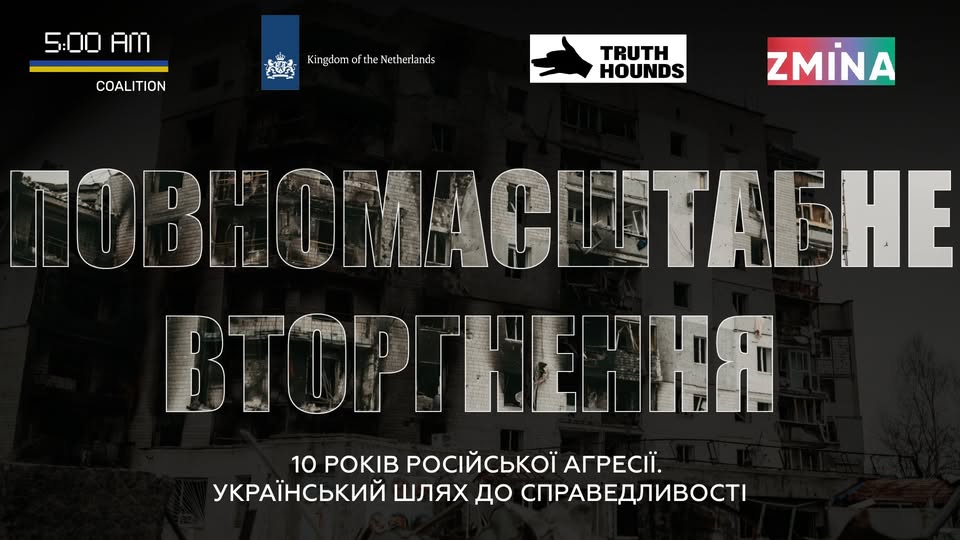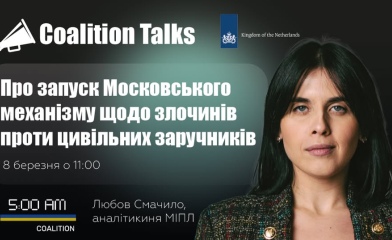On20 February, from 16.00 to 17.30, a discussion panel "Full-scale invasion" will be held at the Ukraine-Ukrinform Media Centre as part of the media marathon "10 Years of Russian Aggression in Ukraine. The Path to Justice".
The morning of 24 February 2022 changed the life of the whole of Ukraine. Russia attacked Ukraine from the north, south and east. The Armed Forces of Ukraine drove the enemy out of half of the newly occupied territories in several stages.
What the Russians left behind in Bucha and Irpin, Borodyanka and Makariv, Izyum and neighbouring villages, Chernihiv and Kherson regions, made the whole world shudder. Unprecedented murders, numerous torture chambers, abductions and deportations are the bloody handwriting of the occupiers. The Russians blew up the Kakhovka hydroelectric power station, and their military activities in the Kherson region and Crimea are destroying unique nature reserves. The invaders have looted or destroyed a number of cultural monuments and museum collections, and continue to erase the historical heritage through illegal excavations and reconstruction.
During the two years of the full-scale invasion, the Russian army committed numerous crimes that have signs of crimes against humanity, war crimes and genocide. The Ukrainian law enforcement system is virtually overwhelmed by the number of cases, which is constantly growing and has crossed the 120,000 mark, according to the Office of the Prosecutor General of Ukraine.
Speakers
-
Tetyana Pechonchyk, Head of the Board of the ZMINA Human Rights Centre;
-
Zera Kozlieva, senior legal advisor at Truth Hounds;
-
Kateryna Ogievska, representative of the NGO Civilians in Captivity;
-
Yuriy Armash, head of the medical unit of the mechanised tank battalion of the 59th Brigade named after Y. Handziuk, who was captured and tortured;
-
Vladyslav Havrylov, research historian of the "Where Are Our People?" project of the PR Army NGO;
-
Stanislav Petrenko, Head of the Department for Combating Crimes Committed in the Context of Armed Conflict at the Office of the Prosecutor General of Ukraine;
-
Natalia Antoniuk, judge of the Supreme Court.
-
Moderator: Roman Romanov, Director of the Human Rights and Justice Programme at the International Renaissance Foundation.
Questions for discussion
-
What challenges did law enforcement and civil society face two years ago - what solutions have been found and what solutions still need to be found?
-
Why is high-quality documentation and investigation of Russian crimes the basis for future justice?
-
Why is relying on the ICC alone a futile exercise?
-
What role do Ukrainian courts play?
-
How many cases have been investigated and brought to court, and why are war crimes trials in Ukraine virtually ignored by the public?



